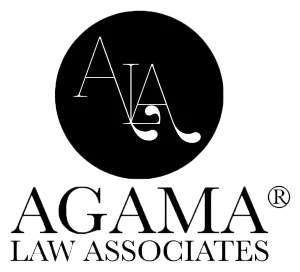We often get asked by clients whether copyright registration is mandatory and if not - why is that the case? How are the protections offered different for a trademark versus that offered for a copyright. So we have put together a simple blog post outlining the general nature of copyright and why registration of copyright is not mandatory to get protection under law.
Introduction
Intellectual property is the creative work of human intellect and originates in the mind of a person before it is reduced to material. Protection of this intellectual property not only rewards the creativity of the owner but also promotes progress of science, technology, arts, literature and several other creative works of human mind. In today's world creativity and innovations play an essential role for success.
As per the Copyright Act of 1957 ("Act"), intellectual property protection is conferred upon the creators of (a) original literary, dramatic, musical and artistic works; (b) cinematograph films; and (c) sound recordings1("Work"). Copyright refers to the set of legal rights that a creator acquires over a Work when it is produced by the creator ("Copyright"). Copyright is divisible, transferable and is an intangible property that lasts for only a limited period of time. Copyright assures authors the right to their original expression and at the same time encourages others to freely build upon the ideas and information conveyed by the Work2.
Term of Copyright is limited to the life of the author and extends by legal fiction to sixty years after his death3 (referred as 'sixty years post mortem auctoris'). This applies to the term for published literary, dramatic, musical and artistic Works. However, for cinematograph films, sound recordings, posthumous publications, anonymous and pseudonymous publications, works of government, and works of international organizations, the term of Copyright subsists for 60 years from the date of publication.
Is registration of Copyright mandatory?
It is interesting to note that Copyright is accorded to the Work as soon as it is created and hence its registration is not mandatory. This means to enforce your Copyright or seek remedy against infringement of your Copyright, you need not get your Work registered.
The rationale for this stems from the automatic principle under the Berne Convention for the Protection of Literary and Artistic Works (1886) ("Convention") which was subsequently reiterated in the Agreement on Trade-Related Aspects of Intellectual Property Rights (TRIPS). India has ratified the aforesaid Convention and TRIPS Agreement. The Berne Convention for the Protection of Literary and Artistic Works (1886) stands on three basic principles for determining the minimum level of protection to be accorded to the Work, one of which is "automatic protection". This means once you have created a Work, by the very nature of it, the Work is conferred the protection of Copyright and you may not get the same registered.
Section 45(1) of the Act clearly mentions that the author or publisher of, or the owner of or other person interested in the Copyright in, any Work may make an application in the prescribed form accompanied by the prescribed fee to the registrar of Copyrights. The use of word "may" clearly indicate that the author is at the discretionary liberty to apply for registration of Copyrights. This notion is further strengthened by certain judgments highlighting this fact.
In Sanjay Soya Private Limited Vs. Narayani Trading Company, Bombay High Court held that registration of Copyright under the Act is not compulsory and depends upon the owner's discretion and none of the provisions of the Act require registration of Copyright before seeking reliefs under the Act. Further, the court also relied up on the Convention and the TRIPS Agreement to support this decision. Registration merely raises a prima facie presumption in respect of particulars which are entered in the register of Copyright4. Under Section 45(1) of the Act which is related to the entries in register of Copyrights, make use of the word "may" and Section 51 provides that infringement does not restrict itself to the registered Work. As the Work comes into existence, protection should be 'automatic'.
Advantages of Copyright Registration
The question then arises as to why should one even seek registration. We have set out below some advantages of "copyright protection" through registration which is in addition to the exclusive use or monopoly granted by law to owners of the Work.
- Copyright Registration is prima facie evidence: Section 48 of the Act provides for the prima facie validity to the Work and the owners to get the preliminary injunction right against a Copyright infringer. It acts as evidence for providing an ownership of Work to the real owner.
- Protection globally and from unauthorised use: According to the Berne Convention, when a work is copyrighted in one contracting Country, then similar privileges would be enjoyed by the owner as in another contracting Country. Copyright registration may not be mandatory, but it sure does give a convenient locus standi to the owner in any event.
- Economic Rights are attached to Work: Once a Work is copyrighted, it allows the rightful owner to derive economic benefits from the use of copyrighted Work by others. The owner of the Work can earn royalty by authorizing others to (a) reproduce the Work in various forms such as sound recordings, printed publications, etc., (b) distribute copies of the Work, (c) through broadcasting or other communication of Work to public, (d) adaptation of Work such as turning a novel into a screenplay, etc. Therefore, copyright registration of Work also helps in gaining financial rewards to the owner.
- Keeps a track of the Work of owner and provides date of publication: The owner of the registered Work is listed in the register of Copyrights, and this enables the owner to track the Work. The date of publication is an important aspect in dealing with infringement cases, Copyright registration includes the date of publication of the Work. As a result, when a case of infringement occurs, it can be easily identified.
- Licencing right to owners: The Copyright owners have the right to license their Work to others. Registration of Copyright enables anyone to ascertain the true owner of the Work and there is sufficient confirmation that the Work belongs to the licensor. For exploiting one's own Work, Copyright registration thus plays a crucial role.
- One-time registration: The Copyright registration is a one-time process and hence it saves the trouble of renewal. The term for which this right is granted is very long and it allows the owner to exploit his Work throughout his life and his ownership becomes a matter of public record.
Non-registration of Copyright
It is not essential to register a Work in order to acquire protection because when an original Work is completed, it is instantly protected by Copyright. There are no actual disadvantages or risks involved in non-registration of one's Work for Copyright. However, registering your Work makes it easier to protect your Work. Nonetheless, as explained above, non-registration cannot stop the owner from seeking remedies in the event of infringement.
In Sum
Copyright, or for this matter, any intellectual property constitutes an essential element in economic development of any country. Copyright provides the owner, the right to their original expression and also allows them to freely build on the ideas conveyed by the Work. Registration of Copyright definitely comes with a price in the form of registration fee. Hence, the owner should always consider the marketability of their Work in light of the fact that he already has been conferred with the Copyright of his Work. Registration is advisable more particularly when the Work is of international nature or the use is in more than 1 country. Further, the decision in Sanjay Soya Private Limited case settled the ambiguity in relation to the mandatory registration of Copyrights. This is a welcome decision by the Bombay High Court and encourages people to create Works more freely without having to undergo any formality to claim ownership in their Work.
Footnotes
1. Section 13(a) of the Copyright Act, 1957
2. Eastern Book Company v. D.B. Modak, (2008) 1 SCC 1
3. Section 22 of the Copyright Act, 1957
4. Section 48 of the Copyright Act, 1957
The content of this article is intended to provide a general guide to the subject matter. Specialist advice should be sought about your specific circumstances.


